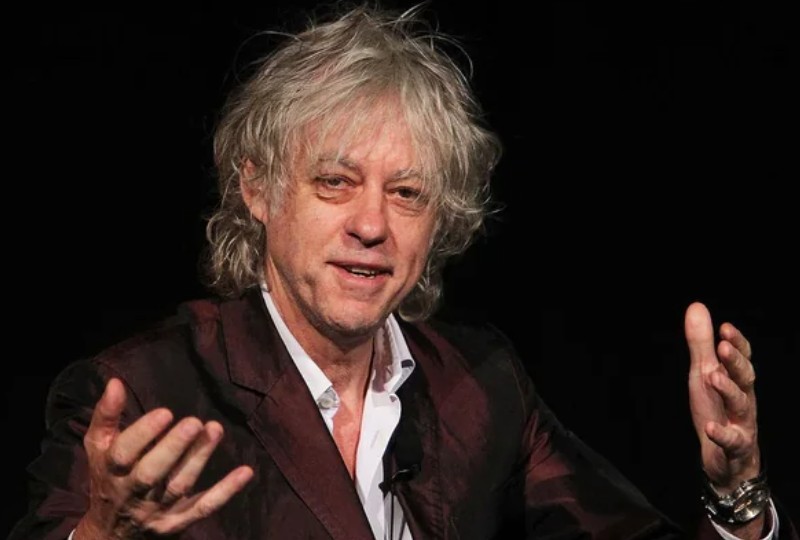Bob Geldof Slams ‘White Saviour’ Claims After Bono’s Remarks
Bob Geldof has dismissed claims that his humanitarian efforts in Africa reflect a so-called “white saviour complex”, insisting he has never been motivated by anything other than stopping people from starving.
The 73-year-old Irish musician, best known for spearheading the Band Aid single and the historic Live Aid concert, hit back after long-time collaborator Bono admitted to wrestling with the idea himself.
“That doesn’t exist,” Geldof said. “That’s just a word, a theory like Original Sin.”
The debate resurfaced after U2 frontman Bono, 65, reflected on the limitations of charity work in his 2022 bio Surrender 40 Songs, One Story.
In the book, he conceded that corridor of Band Aid’s sweats may have appeared tone- deaf, and conceded moments where he felt shamefaced of embodying the very examinations levelled at similar juggernauts.
When pressed on Bono’s perspective, Geldof was characteristically blunt. Speaking to The iPaper, he remarked: “Well, yeah, he probably believes it. But there isn’t such a thing.
I’m not interested in political correctness, this certain woke stuff. It’ll pass, and you’ll still have hungry people.
I’m only interested in stopping human beings dying of starvation. I’m not interested in boosting someone’s idea of their parents’ country.”
Geldof’s activism, which took off in the mid-Eighties at the height of Ethiopia’s famine, saw him mobilise the biggest names in music.
The 1985 Live Aid concert drew in a global audience of more than a billion and raised over $127m (£109m).
Queen’s iconic Wembley performance and David Bowie’s set became etched in history, but so too did the criticism that followed.
Some commentators, including The Guardian, have since argued that Live Aid reinforced “a patronising image of Africa as a continent desperate for, and dependent on, western aid.”
Geldof, never one to hold back, dismissed that critique as “the greatest load of b****cks ever”.
He has also previously explained how media pressure shaped the coverage of his early visits to Africa. “I said, ‘I’m not the story.
People are f***ing dying of no food in a world of surplus food, that’s the story.’
And they said, ‘We can’t keep doing the starving child, the starving mother, we’ve done it, Bob.’”
For Geldof, the question has always been simple: act, or do nothing. “If there was a famine in Italy and someone reacts and they’re white, are they a white saviour? Are the only people allowed to react to an African famine Black?” he once argued.
“Are they the only ones allowed to do it? Because, wow, people in Africa are Black, so it can only be a Black person who does that.
If there’s a famine where people are green, do you have to be green to do it? This is a nonsensical, absolutely dismissive argument. It is. I think it’s rubbish.”
Nearly four decades on from Live Aid, Geldof shows no sign of softening his stance. Critics may call him outdated. Others see him as unwavering. Either way, he remains defiant and unapologetic.






